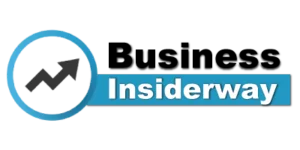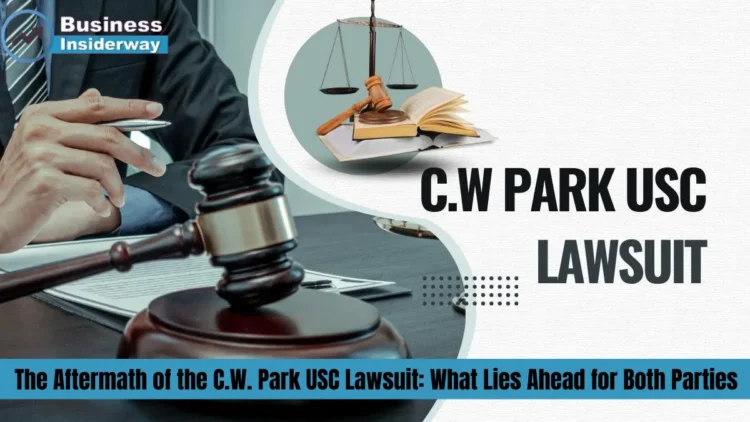Introduction to the C.W. Park USC Lawsuit
In higher education, scandals can send shockwaves through even the most prestigious institutions. The recent C.W. Park USC Lawsuit has ignited a controversy, shedding light on allegations that have rocked the academic community. As accusations swirl and tensions rise, C.W. Park and the University of Southern California find themselves at a crossroads, facing an uncertain future filled with challenges and repercussions. Let’s delve into the aftermath of this high-profile legal battle to uncover what lies ahead for both parties involved.
The Allegations Against C.W. Park and USC
The allegations against C.W. Park and USC have highlighted a troubling issue within higher education. Accusations of misconduct, discrimination, and abuse have rocked the reputation of both the professor and the university. The claims range from inappropriate behavior to creating a hostile work environment for students and faculty.
These allegations have sparked outrage among the public, with many calling for accountability and transparency from USC. The severity of the accusations has raised questions about the ethics and values upheld by educational institutions. Students are left feeling disillusioned by those in positions of power who are meant to guide them toward academic success.
As investigations continue into these allegations, it remains to be seen what consequences will be faced by both C.W. Park and USC. The aftermath of this lawsuit will undoubtedly shape how universities handle similar situations.
Impact on the University of Southern California
The impact of the C.W. Park USC lawsuit on the University of Southern California has been profound. The allegations brought to light have tarnished the institution’s reputation and raised questions about its handling of misconduct cases. As they face these revelations, students, alums, and faculty grapple with betrayal and disappointment.
The fallout from this scandal has led to increased scrutiny of USC’s policies and procedures regarding accountability and transparency. It has also sparked discussions about power dynamics within academic institutions and the need for more robust safeguards against abuse.
As USC navigates through this challenging period, rebuilding trust will be paramount. The university must take concrete steps to address systemic issues highlighted by the lawsuit, including revisiting its protocols for addressing misconduct complaints and ensuring that all community members feel safe and supported.
Moving forward, USC faces a critical juncture in defining its commitment to ethical conduct and fostering a culture of integrity on campus. Only time will tell how effectively the university can rebound from this crisis while upholding its core values amidst heightened scrutiny.
Reactions from the Public and Students
The news of the C.W. Park USC lawsuit sent shockwaves to the public and student body. Many were left reeling from the allegations against Mr. Park and USC, wondering how such a situation could have unfolded within a respected institution.
Social media platforms buzzed with discussions and opinions ranging from disbelief to anger at the alleged actions described in the lawsuit. Students felt betrayed, questioning their trust in an institution they held in high regard.
As details emerged, calls for transparency and accountability grew louder among concerned individuals who demanded justice for any wrongdoing that may have occurred. The weight of these revelations was palpable as conversations about ethics and integrity took center stage.
Amidst the flurry of reactions, one thing became clear. There is a deep-seated need for clarity, honesty, and reform within higher education institutions to address incidents like this swiftly and effectively.
Future Implications for Both Parties
As the dust settles on the C.W. Park USC lawsuit, both parties are left grappling with the consequences of their actions. For C.W. Park, the allegations have tarnished his reputation and raised questions about accountability in academic settings.
The University of Southern California now faces scrutiny over handling misconduct claims and its duty to protect students from harm. The fallout from this case could lead to changes in policies and procedures aimed at preventing similar incidents in the future.
Both parties must navigate a complex landscape of legal challenges and public perception. This lawsuit serves as a reminder that transparency and swift action are crucial when addressing misconduct in higher education.
The implications of this case extend far beyond just C.W. Park and USC; it underscores the importance of upholding ethical standards and ensuring a safe learning environment for all students. Only time will tell how these implications will shape the future for both parties involved in this high-profile lawsuit.
Steps Towards Addressing and Preventing Similar Incidents in Higher Education
In the wake of the C.W. Park USC Lawsuit, higher education institutions must take proactive steps toward addressing and preventing similar incidents in the future. One key aspect is enhancing transparency and accountability within academic environments. By fostering a culture of openness and honesty, universities can create an environment where misconduct is less likely to occur.
Moreover, implementing robust policies and procedures for reporting and investigating misconduct allegations is essential. Universities must ensure that all reports are taken seriously and thoroughly investigated and appropriate actions are taken based on the findings.
Furthermore, promoting ethical leadership at all institutional levels can help cultivate a sense of responsibility and integrity among faculty, staff, and students. By setting clear expectations for behavior and holding individuals accountable for their actions, universities can deter unethical conduct before it escalates into a significant issue.
Additionally, providing comprehensive training programs on ethics, diversity, inclusion, and harassment prevention can equip academic community members with the knowledge and skills needed to navigate complex situations effectively.
Conclusion
The aftermath of the C.W. Park USC Lawsuit has undoubtedly left a lasting impact on both parties involved. As the allegations against C.W. Park and USC continue to unfold, all institutions of higher education institutions measures to address and prevent similar incidents from occurring in the future.
Transparency, accountability, and a commitment to creating safe student environments must be at the forefront of any educational institution’s priorities. The reactions from the public and students serve as a reminder of the importance of upholding ethical standards and fostering a culture of trust within academic communities.
While this lawsuit has brought challenges and scrutiny for USC, it also presents an opportunity for growth and positive change. USC can emerge more robust and resilient by acknowledging past mistakes, implementing necessary reforms, and prioritizing student welfare.
In light of recent events surrounding the C.W. Park USC Lawsuit, both parties need to reflect on their actions, learn from this experience, and work towards rebuilding credibility and trust with their stakeholders. Only by taking decisive steps towards accountability and reform can we pave the way for a brighter future in higher education.














